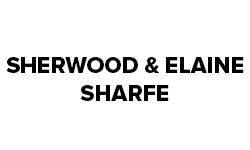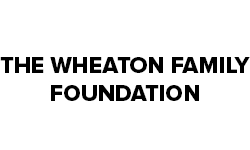Part C: Lifelong Learning Citizens Resources
LESSON RESOURCES
All websites accessed in November 2017.
- http://storyofstuff.org/ Story of Stuff project website
- Story of Solutions – video – http://storyofstuff.org/movies/the-story-of-solutions/
- Story of Stuff – video – https://www.storyofstuff.org/movies/story-of-stuff/
- Story of Water – video
- Story of Change
- International Foundation for Electoral Systems: Democracy along the Pacific Rim https://web.archive.org/web/20121102081542/https://www.ifes.org/Content/Publications/Articles/2005/Democracy-along-the-Pacific-Rim.aspx
Natural Disasters
- Canadian Geographic website: Interactive Developing Worldmap – http://worldmap.canadiangeographic.ca/index.html
- Top Ten Deadliest Natural Disasters of Canada – https://visual.ly/community/infographic/geography/canadas-top-10-natural-disasters
- Canadian Disaster Database – http://cdd.publicsafety.gc.ca/srchpg-eng.aspx
- Canadian Encyclopedia – search Natural Disasters: https://www.thecanadianencyclopedia.ca/en/timeline/disasters
- Canada’s Public Safety website: http://www.publicsafety.gc.ca/cnt/rsrcs/index-eng.aspx
- Canada’s largest natural disasters by cost: https://beta.theglobeandmail.com/report-on-business/canadas-largest-natural-disasters-by-cost/article29877435/?ref=http://www.theglobeandmail.com&
- Canada’s Worst Natural Disasters: https://www.canadiangeographic.ca/article/canadas-worst-natural-disasters-all-time
- The Deadliest Disasters in Canada: http://www.worldatlas.com/articles/the-deadliest-disasters-in-canada.html
Residential School Information
- Where are the Children: Website of resources and archives relating to residential schools http://wherearethechildren.ca
- Legacy of Hope Foundation: This website has many useful resources to support teachers as they teach about the legacy of residential schools. http://legacyofhope.ca/education/
- https://garnetsjourney.com/ website that tells the story of one residential school survivor
- Aboriginal Healing Foundation: http://www.ahf.ca/
- First People’s of Canada website: http://firstpeoplesofcanada.com/fp_groups/fp_groups_origins.html
- We Organization website: https://www.we.org
- Historical Thinking Project: Canada’s History: http://www.canadashistory.ca/Education/Classroom-Resources/The-Historical-Thinking-Project
- Choose Your Voice: http://www.chooseyourvoice.ca
CROSS CURRICULAR CONNECTIONS
Language Arts
Themes
- Personal and Philosophical: Students will reflect upon:
- self-image and self-esteem; and,
- self and life, and on their beliefs and values and those of their society.
- Social, Cultural, and Historical: Students will
- look outward and examine their relationships with others, their community, and that of the world; and,
- consider the historical context.
- Environmental and Technological: Students will:
- explore the elements of the natural and constructed world and the role of technology and related developments in their society.
- Communicative: Students will:
- consider the role of communication in their lives and the ideas and technologies that help people become effective communicators.
Treaty Education
- TR7: Analyze to what extent each of the signatories to treaty meets their respective obligations.
- SI7: Examine Oral Tradition as a valid way of preserving accounts of what transpired and what was intended by entering into treaty.
- HC7: Examine the Indian Act, including its amendments, and explore the effects it has on the lives of First Nations.
- TPP7: Investigate the impact of Bill C31 on the equality of genders under the Indian Act.
Health
Understanding, Skills, and Confidences (USC)
- USC7.4 Demonstrate a personalized and coherent understanding of the importance of nurturing harmony in relationships (with self, others, and the environment), and apply effective strategies to re/establish harmony when conflict arises.
- USC7.7 Investigate and express an understanding of possible discrepancies in morals (e.g., beliefs, ethics, virtues, understanding of right/wrong) that may determine and/or affect the commitment to the well-being of self, family, community, and the environment.
Science
Life Science: Interactions within Ecosystems (IE)
- IE7.1 Relate key aspects of Indigenous knowledge to their understanding of ecosystems. [CP]
- IE7.2 Observe, illustrate, and analyze living organisms within local ecosystems as part of interconnected food webs, populations, and communities. [SI]
- IE7.4 Analyze how ecosystems change in response to natural and human influences, and propose actions to reduce the impact of human behaviour on a specific ecosystem. [DM, CP]
Earth and Space Science: Earth’s Crust and Resources (EC)
- EC7.1 Analyze societal and environmental impacts of historical and current catastrophic geological events, and scientific understanding of movements and forces within Earth’s crust. [SI]
- EC7.2 Identify locations and processes used to extract Earth’s geological resources and examine the impacts of those locations and processes on society and the environment. [SI, DM, CP]
- EC7.3 Investigate the characteristics and formation of the surface geology of Saskatchewan, including soil, and identify correlations between surface geology and past, present, and possible future land uses. [DM, SI]
FURTHER INVESTIGATION SUGGESTIONS
- Students will investigate and examine an historical event that took place in the Pacific Rim or Circumpolar countries that has affected them both physically and socially. They will use a selected type of media to present their work.
- Rana factory collapse in Bangladesh
- Earthquake in Nepal
- Have students follow an economic and environmental issues or event that arises between Canada and Pacific Rim countries.
- Write a letter to elected officials (municipal, provincial, parliamentary). Ask what they are doing about Aboriginal issues and ask them to work to restore funding to community-based initiatives that deal with the intergenerational impacts of residential schools.
GLOSSARY
“Text from Vocabulary.com, Copyright ©1998-2016 Thinkmap, Inc. All rights reserved.”
Common Good – the good of a community
“Common good, that which benefits society as a whole, in contrast to the private good of individuals and sections of society.
From the era of the ancient Greek city-states through contemporary political philosophy, the idea of the common good has pointed toward the possibility that certain goods, such as security and justice, can be achieved only through citizenship, collective action, and active participation in the public realm of politics and public service. In effect, the notion of the common good is a denial that society is and should be composed of atomized individuals living in isolation from one another. Instead, its proponents have asserted that people can and should live their lives as citizens deeply embedded in social relationships.” (http://www.britannica.com)
Ecological
Anything ecological relates to the science of ecology, which is the study of how living things and the environment do their thing.
Eg. If you’re interested in issues like preserving rain forests, saving endangered species, and keeping drinking water safe, you’re interested in ecological issues. Ecological things have to do with how plants and animals relate to each other, in good and bad ways, in specific environments-from the impact of floods on river insects to how smog harms humans. Just about anything people do has an ecological impact – for better or worse.
Ethnocide
Ethnocide refers to the deliberate attempt to eradicate the culture or way of life of a people. . . . Ethnocide depends on the use of political power to force relatively powerless people to give up their culture and is therefore characteristic of colonial or other situations where coercion can be applied. . . . The term is sometimes used to refer to any process or policy that results in the disappearance of a people’s culture.
The Dictionary of Anthropology (1997).
Edited by Thomas Barfield. Blackwell Publishers Ltd.
Globalization
The process of ideas, products, and people moving around the planet with greater ease and efficiency. Globalization takes advantage of cheaper labor in less developed nations but increases free trade between nations and the free flow of capital.
Eg. Globalization has transcended its traditionally economic concept to be used in many different ways now. The globalization of Barbie began with the opening of a Barbie boutique in Beijing. Use globalization anytime a trend spreads beyond its expected boundaries, reaches beyond expected populations. “At your high school, girls started a trend of wearing hard hats to school every day. Your cousin in Austria mentions girls doing it there. You can joke that the trend has ‘gone global.'”
Stewardship
Stewardship means the management or care of something, particularly the kind that works. If your company is making money, there’s probably been careful stewardship — or, a lot of luck.
Eg. The sphere or responsibility of a steward (as in a manager or administrator), stewardship is often used to mean “the care, handling and management of resources.” Your school requires stewardship to make sure its supplies aren’t stretched. Your clean water may be thanks to the stewardship of an environmental office. Though there is a steward on a ship to handle food and supplies, the ship in stewardship is not a seagoing vessel; it’s just a suffix.
Social Environment Definition
Human social environments include the immediate physical surroundings, the social relationships, and cultural backgrounds within which a specific group of people function and interact. Also included in social environments are historical, social and power relations that have been established over time. When trying to understand social environments it is important to think about households, family or kinship networks, neighbourhoods, towns, cities, and regions. Social environments consider the relationships that exist between these different environments and the changes in those relationships.
More information can be found in the research article, A Definition of “Social Environment” by Elizabeth Barnett, PhD and Michele Casper, PhD located at: http://www.ncbi.nlm.nih.gov/pmc/articles/PMC1446600/pdf/11249033.pdf .
Dictionary.com describes social environment as the environment that humans develop rather than the environment created by nature or natural environment. It includes society as a whole and how individuals function and interact with one another.
Social environment also includes the norms, standards, or rules by which people interact with one another. Social environments change as a person grows and expands their social interactions.
More information can be found at
http://www.sociologydiscussion.com/society/social-environment-meaning-concept-and-features/2445
Sustainable (adj.) (vocabulary.com)
If something is sustainable, than it can be maintained or continued. A 5-minute mile pace probably isn’t sustainable for anyone other than Olympic marathon runners.
These days this adjective is often used to describe something that has a low long-term effect on the environment, like “sustainable agriculture” — a method of farming that doesn’t ravage the land, deplete resources permanently or produce a great deal of pollution. Break down the word into two parts, sustain and able, to visualize and remember that you’re able to sustain something sustainable.
Sustainability
The property of being sustainable.
“Sustain” means to last over time, so sustainability is the ability of something to last. As a civilization, we are concerned about the sustainability of our planet.
Sustainability became a big idea after people began to realize that we were using up our natural resources, so you’re most likely to come across the word when you’re reading about recycling and energy use. If you hear someone talking about sustainability in the context of energy, they’re probably talking about alternatives to oil or coal — both of which will run out in the future. A sustainable source of energy is something that’s always there — like water or wind.
Opinion
Who wouldn’t want the job of opinion writer for a newspaper. You get paid to sit around and tell people how you feel about things. And you know lots of people have no shortage of opinions.
An opinion is a belief or attitude about something that isn’t necessarily based on facts. You may have an opinion about Gwyneth Paltrow that I don’t share. There’s no way to prove who’s right and who’s wrong. Those are our thoughts about her, and that’s the way it is.
APPENDIX
© 2024 Concentus Citizenship Education Foundation Inc. All Rights Reserved.









